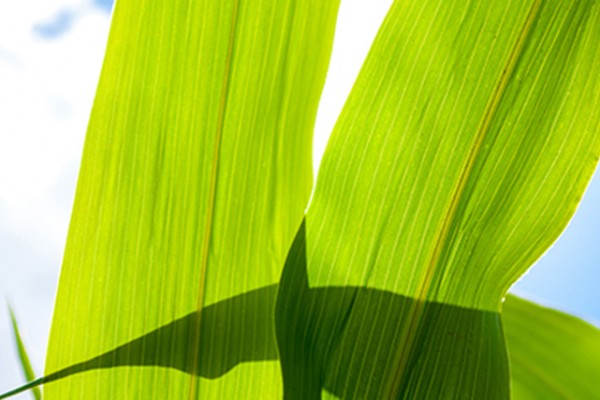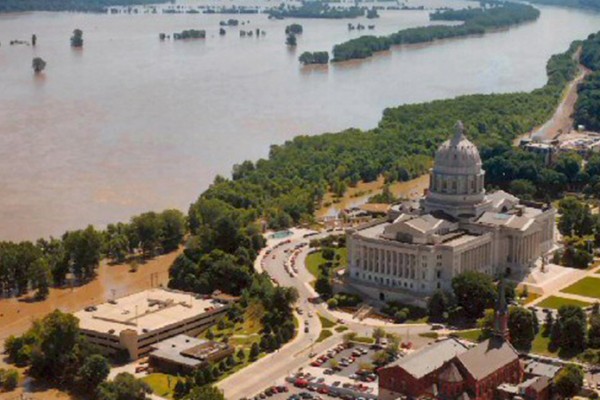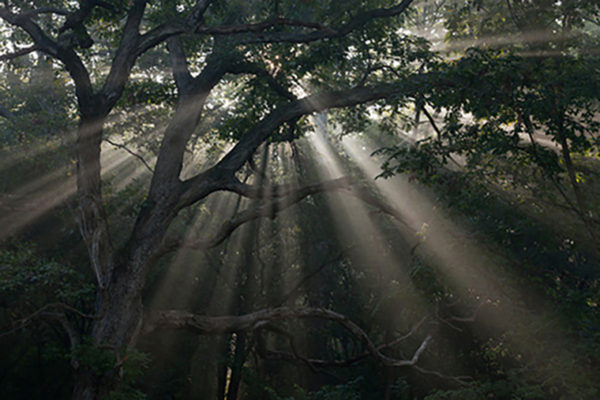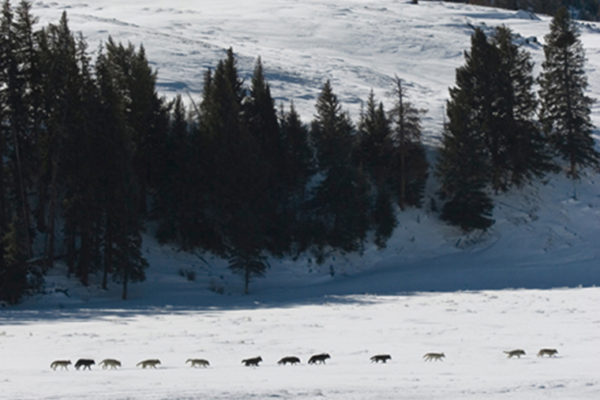Smart cornfields of the future
Scientists attending a workshop at Cold Spring Harbor Laboratory slipped the leash of scientific caution and tried to imagine what they would do if they could redesign plants at will. The ideas they dreamed up may make the difference between full bellies and empty ones in the near future when population may outrun the ability of traditional plant breeding to increase yields.
Major Midwest flood risk underestimated by as much as 5 feet, study finds
As floodwaters surge along major rivers in the midwestern United States, a new study from Washington University in St. Louis suggests federal agencies are underestimating historic 100-year flood levels on these rivers by as much as five feet, a miscalculation that has serious implications for future flood risks, flood insurance, and business development in an expanding floodplain.
Their classroom is the desert
The hallmark of the 18-month Pathfinder Program in Environmental Sustainability at Washington University in St. Louis is the field trips to ecosystems, such as the Mojave Desert, that give students the chance to see and touch the land they have been studying. It’s hard to get the students back in the van, says Ray Arvidson, who leads the program.
Tyson designated an Earth Observatory
A 60-acre plot in Washington University in St. Louis’ Tyson Research Center has been named a Forest Global Earth Observatory, or ForestGEO. The oak-hickory forest in the rolling foothills of the Ozarks joins a network of 51 long-term forest study sites in 23 countries, including eight others in the United States. Together, the forests, containing roughly 8,500 species and 4.5 million individual trees, comprise the largest, systematically studied network of forest-ecology plots in the world.
Environmental politics and climate change
Political scientist William Lowry has paid close attention to environmental issues for 25 years, marshaling what he learns each year and testing it in front of a class of critical students. He has honed his class “Environmental and Energy Issues” to the point where it is a white-water ride down a river of arguments and counterarguments that puts everything in context and lays out the
facts — but skips the lecturing and fearmongering that characterize this debate. There can be no better guide to the perplexed.
Climate Change Initiative: A conversation
Himadri Pakrasi, PhD, director of the International Center for Advanced Renewable Energy and Sustainability, sat down recently with Peter Raven, PhD, the George Engelmann Professor of Botany Emeritus in Arts & Sciences and
president emeritus of the Missouri Botanical Garden, for a conversation about the Washington University Climate Change Initiative.
Global leaders to gather in St. Louis to strengthen U.S.-India connection around innovation and education
Leaders from two of the world’s top research universities and several major international corporations will gather in St. Louis Saturday and Sunday, Oct. 19-20, for the Washington University in St. Louis-Indian Institute of Technology Bombay Corporate Conclave, aimed at strengthening the U.S.-India connection around innovation and education, particularly in addressing pressing global issues.
Climate change expert to speak at Washington University
This year’s Albert P. and Blanche Y. Greensfelder Lecture will focus on climate change and human health. The lecture will be 4 p.m. Friday, Oct. 18, in Simon Hall, May Auditorium. The speaker is Howard Frumkin, DrPh, MD, dean and professor at the University of Washington School of Public Health.
What historians have to say about global warming
The public discussion of global warming can feel very stuck at times. An innovative course at Washington University in St.
Louis offers a way forward by making available the efforts of historians
to integrate natural history and human history over the past 40 years.
Taught by Venus Bivar, PhD, assistant professor of history in Arts & Sciences, it is an
introduction to a discipline called environmental history, with a
special focus on climate change.
Engineering’s Williams to study climate trends in St. Louis and southeastern U.S.
Brent Williams, PhD, of the School of Engineering & Applied Science at Washington University in St. Louis,
has received a nearly $300,000 Early Career grant from the U.S.
Environmental Protection Agency (EPA) to bring his expertise in
measuring particles in the atmosphere to a national study of the climate
trend in the southeastern United States as well as the St. Louis
area.
View More Stories




